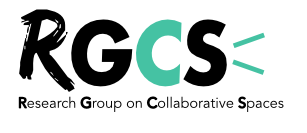1. DESCRIPTION
Organizations are increasingly driven to address sustainability challenges, whether environmental or societal, by evolving their organizational structures and work practices. For instance, work practices and infrastructure must adapt to climate changes such as heat waves and flooding, social unrest including strikes and political instability, and individual stress factors like eco-anxiety and heat stress.
The “Building Sustainable Futures: Transforming Organizational Realities” standing group is dedicated to exploring the intersection of sustainability and new ways of working (NWoW) amid contemporary workspace transformations. Embracing an interdisciplinary perspective, our primary focus is to understand the dynamics within organizations, coworking spaces, third places, remote work environments, and innovative work and lifestyle arrangements. We aim to elucidate how these contexts and new working methods interconnect, promoting sustainable practices and lifestyles for organizations and society at large.
Currently, our research is organized around three key axes, though additional propositions are welcomed:
- Individual – Sustainable reflexivity and bifurcation: We investigate how reflexivity on sustainability issues prompts individuals to question organizational routines and realities. When this tension becomes too great, bifurcation may appear to be the only solution. We are particularly interested in exploring what occurs before individuals bifurcate from their current context, and the roles that reflexivity, resistance, and even organizational inertia play in either preventing or facilitating sustainable change.
- Organizational - Adapting organisations to new realities: We examine how organizations and alternative entities like co-working spaces respond to various sustainability pressures and build new sustainable futures. Specifically, we aim to explore how these pressures influence organizations to adopt new ways of working (NWoW) and create new spaces, whether virtual or physical. We seek to understand the impacts of these shifts on organizational control, culture, decision-making, innovation, and other critical areas.
- Community - NWoW and the promotion of sustainable community lifestyles: We explore how NWoW can foster sustainable lifestyles through principles such as sufficiency, enoughness, and local arrangements. This axis examines how adopting NWoW can lead to more sustainable living patterns, including reduced consumption, self-production, and increased local community engagement. We study the potential of NWoW to align professional and personal lives with sustainability principles within local communities.
Through these research avenues, the “Building Sustainable Futures: Transforming Organizational Realities” standing group seeks to contribute to the understanding of how new work practices can support sustainable development. By examining the interplay between organizational practices, individual behaviours, and societal trends, we aim to provide insights that inform policy, guide organizational strategy, and inspire further research in the field of sustainable work practices.
Possible actions:
- Orienting the Reading group RGCS toward sustainability
- Writing a literature review on sustainability and nwow
2. POSSIBLE COLLABORATIONS
Several collaborations could be included into the life of this SG, notably with local actors, cities, practitioners, consultants, activists, researchers and artists.
3. CHAIR(S) OF THIS STANDING GROUP
Adèle Gruen and Anna Glaser are co-chairs of this Standing Group. Adèle Gruen is Junior professor, chair Management and the Ecological Transition, DRM, Université Paris Dauphine-PSL. Anna Glaser is Assistant Professor, Management Department, ESCP Business School, Paris France
4. REFERENCES
Alvesson, M., & Spicer, A. (2012). A stupidity‐based theory of organizations. Journal of management studies, 49(7), 1194-1220.
Allen, S., Cunliffe, A. L., & Easterby-Smith, M. (2019). Understanding sustainability through the lens of ecocentric radical-reflexivity: Implications for management education. Journal of Business Ethics, 154, 781-795.
Corlett, S., Ruane, M., & Mavin, S. (2021). Learning (not) to be different: The value of vulnerability in trusted and safe identity work spaces. Management Learning, 52(4), 424-441.
Devenin, V., & Bianchi, C. (2023). Trajectories towards a voluntary simplicity lifestyle and inner growth. *Journal of Consumer Culture*, 23, 497–516.
Ehrnström-Fuentes, M., & Biese, I. (2023). The act of (de/re)growing: Prefiguring alternative organizational landscapes of socioecological transformations. *Human Relations*, 76, 1739–1766.
Ergene, S., & Calás, M. B. (2023). Becoming Naturecultural: Rethinking sustainability for a more-than-human world. *Organization Studies*, 44, 1961–1986.
Fronty, J., & Glaser, A. (2023). Réflexivité et dissonance au sein des organisations : Le défi de la transition écologique. Revue française de gestion, (6), 85-99.
Sandberg, M. (2021). Sufficiency transitions: A review of consumption changes for environmental sustainability. *Journal of Cleaner Production*, 293, 126097.
Schiller-Merkens, S. (2022). Prefiguring an alternative economy: Understanding prefigurative organizing and its struggles. *Organization*. Advance online publication. doi:10.1177/13505084221124189.
Steyer, V., & Glaser, A. (2024). Dynamiques des organisations. Les décrypter pour un monde plus durable et équitable. Paris: Dunod.
Vandeventer, J. S., Lloveras, J., & Warnaby, G. (2023). The transformative potential of everyday life: Shared space, togetherness, and everyday degrowth in housing. *Housing, Theory and Society*. Advance online publication.
Vlasov, M. (2021). In transition toward the ecocentric entrepreneurship nexus: How nature helps entrepreneurs make ventures more regenerative over time. *Organization & Environment*, 34, 559–580.
Vlasov, M., Heikkurinen, P., & Bonnedahl, K. J. (2023). Suffering catalyzing ecopreneurship: Critical ecopsychology of organizations. *Organization*, 30, 668–693.
